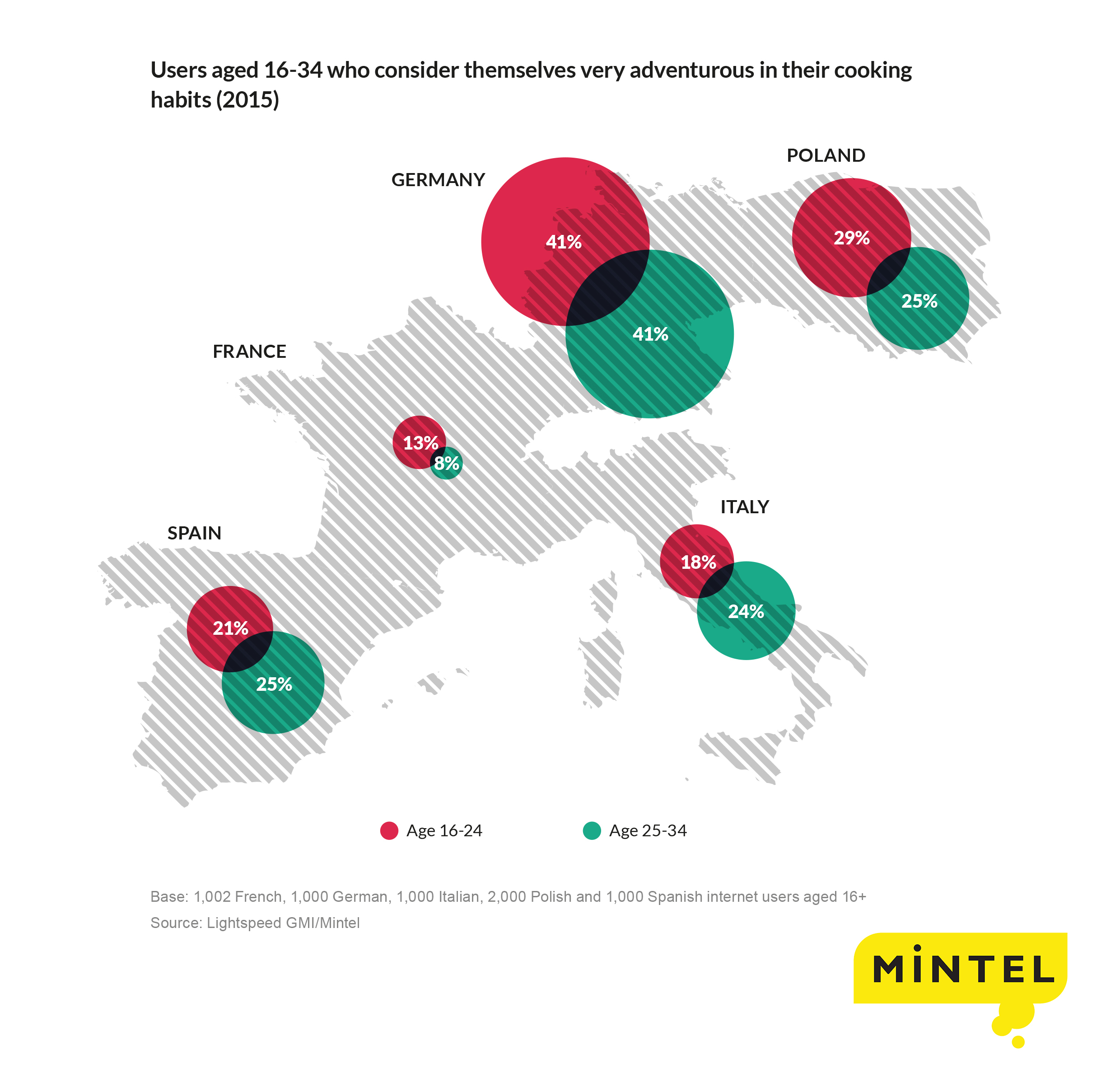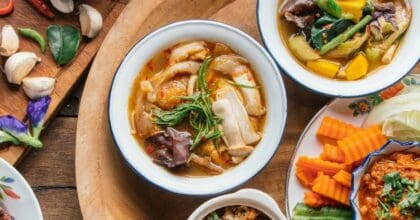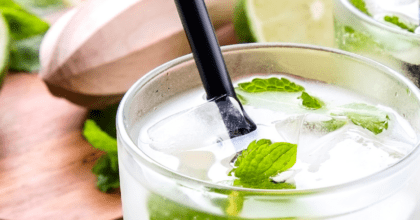German Millennials are now one of the most adventurous consumer groups in Europe
Rather than a traditional dish of bratwurst and sauerkraut, it seems that today’s young German consumer would rather tuck into a plate of sushi or a bowl of wasabi-flavoured chocolate. Indeed, new research from Mintel finds that German consumers born between 1980 and 2000 are one of the most adventurous generations in Europe when it comes to cooking or eating something new.
Mintel’s research finds that two in five (41%) 16-24 year olds in Germany consider themselves to be very adventurous in their cooking habits. In comparison, looking at the same age group in other European countries this percentage is considerably lower: 13% in France, 18% in Italy, 21% in Spain and 29% in Poland. Moreover, only one in five (18%) German Millennials agree they like sticking to traditional recipes, compared to 29% of the same age group in Poland and at 24% in Spain.
However, it seems this more creative approach to food is a relatively recent adaptation in Germany. Today, 44% of Germans aged 25-34 say they are keen to try out more exciting recipes, compared to just 26% who said the same in 2012. What’s more, in 2012 less than one in four (23%) of German 16-24 year olds said they considered themselves adventurous when preparing a meal.
Katya Witham, Senior Food and Drink Analyst at Mintel, said:
“German Millennials are becoming increasingly daring in their cooking, abandoning traditional recipes in favour of new tastes and flavours. Introduced to ethnic dishes early in life, Germans born in the 80s and 90s have grown up with everything from lasagna to sushi and are therefore very likely to display curious eating habits.”
Additionally, Mintel research finds that German Millennials are keener to challenge their boundaries of flavours and taste sensations than previous generations. Three in 10 (29%) German 16-24 year olds and 27% of 25-34 year olds agree that unusual ingredients or flavours such as pretzels or wasabi make chocolate more appealing to them. In comparison, only 16% of Germans aged 45-54 agree with this statement.
What’s more, three out of five (59%) German 16-24 year olds say that they would like to try different flavours of coffee such as hazelnut or vanilla, yet just 34% of 45-54 year olds agree they find this appealing.
But it seems that German Millennials are not only on a quest for the latest taste extremes, they are also more health conscious than previous generations. Over two in five (43%) Germans aged 16-24 say they are prepared to change their lifestyle to be healthier, compared to 32% of consumers aged 45+. Furthermore, 32% of German consumers aged 16-34 say they regularly check the ingredients list contained on the pack, while 27% of 25-34 year olds claim they avoid food and drinks that contain artificial additives or preservatives.
Additionally, it seems that young Germans are also more likely to jump on the bandwagon of on-trend diets such as vegetarianism or high protein. Almost two in five (37%) Germans aged 16-24 say that they are incorporating more protein into their diets compared to a year ago, while only 17% of 45-54 year olds say the same.
As previous research from Mintel has shown, vegetarianism and meat alternatives are on the rise in Germany. Indeed, 16% of German 16-24 year olds claim to be vegetarian, compared to 6% of German consumers overall. In comparison, only 9% of Italian and 8% of Spanish consumers in the same age group say they follow a vegetarian diet.
“Millennial consumers in Germany are devoted to healthy eating and active lifestyles, with health and wellness being high on their daily agenda. Therefore, health- and performance-enhancing food and drink products based on all-natural formulations are best placed to capture the attention of this demographic.” Katya concludes.
The full copy of Mintel’s whitepaper “Meet Germany’s Millennials” is available for free download here, including the three key attitudes German Millennials share in their buying, cooking and eating habits.
More information on the sample sizes of the surveys and interviews with Senior Food and Drinks Analyst Katya Witham are available on request from the press office.

Katya Witham is Senior Food & Drink Analyst, identifying and exploring the major trends across various FMCG categories, giving invaluable insights into global markets.
-
Mintel StoreGet smart fast with our exclusive market research reports, delivering the latest data, innovation, trends and strategic recommendations....View reports
-
Mintel LeapMintel Leap is a revolutionary new AI-powered platform that will transform your research process....Book a demo








































